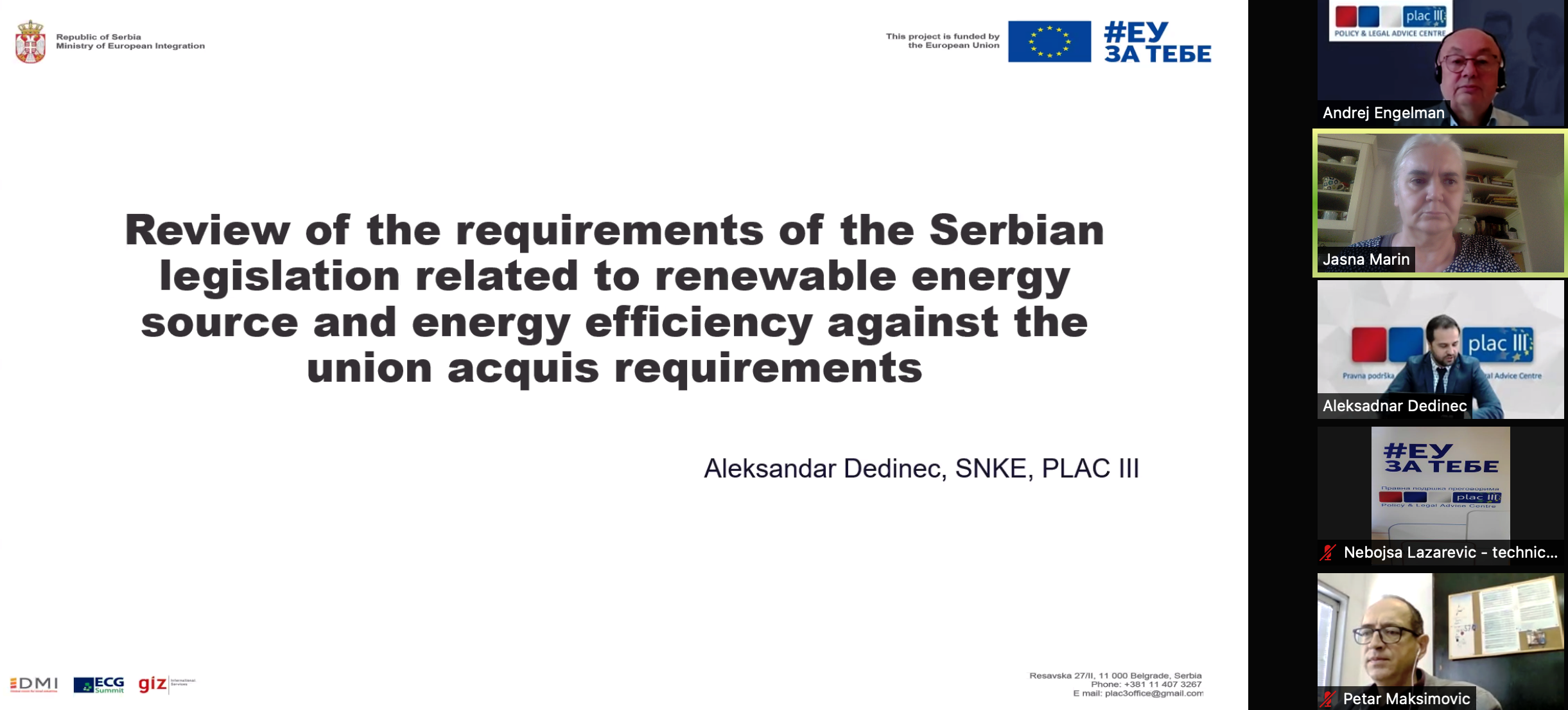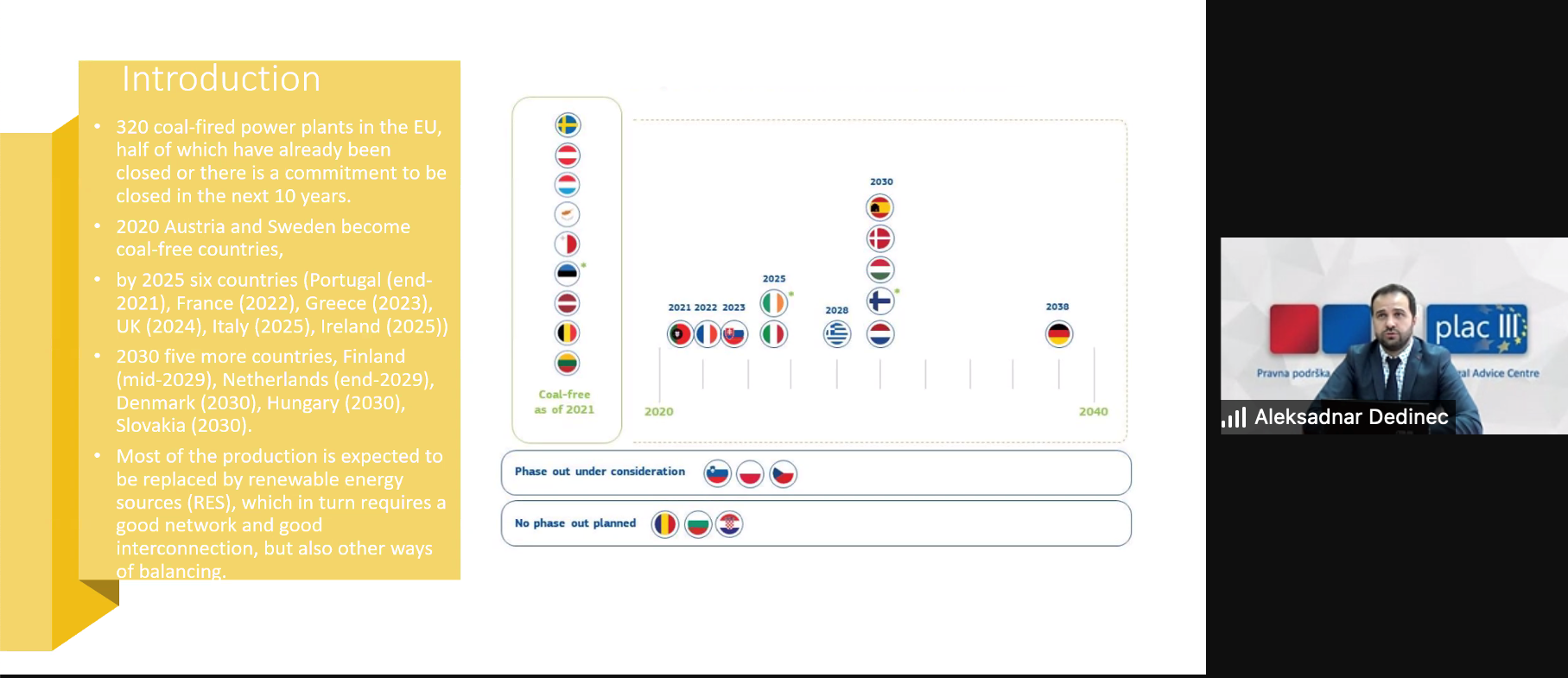The PLAC III project has provided support to the Energy Agency of the Republic of Serbia in harmonising the legislation on renewable energy sources with the Union acquis, i.e. in establishing support mechanisms that will enable their greater use.
The 2018 revision of the EU Renewable Energy Directive (Directive 2018/2001/EU) foresees competitive procedures e.g. market premiums as standard direct instruments for granting support for production of electricity from renewable energy sources, allowing for use of feed-in tariffs only in case of small-scale installations or demonstration projects. Such approach is fully in line with earlier issued EC Guidelines on State Aid for Environmental Protection and Energy and EC Guidance for the Design of Renewables Support Schemes.
The latest Report on Implementation of the National Renewable Energy Action Plan (2018-2019) issued by the Ministry of Mining and Energy reveals that although a steady growth in building new capacities for the production of electricity from renewable energy sources was maintained in the last two years, the planned quantities have not been achieved (e.g. share of RES in GFEC in 2019 was 21.44% of the planned 25.6%). This is far below the target of 27% set for 2020.
In order to further align with the Union acquis related to renewables and state aid, but also to address the slow penetration of RES in electricity sector, in early 2021, the Ministry of Mining and Energy initiated drafting of a new Law on Renewable Energy. The Draft Law envisages both support mechanisms are established on auctions, whereby the Energy Agency is empowered to adopt a methodology setting tariff design parameters.
The project provided assistance to the Agency in developing methodologies for both types of support (market premiums and feed-in tariffs). At a workshop held on October 7, 2021, project expert Aleksander Dedinec presented an overview of best European practices, the review of the market in the region as well as draft methodologies for determining the initial bidding price for both types of support. He presented the methodologies in the case of renewable energy sources, but also in the case of high efficiency co-generation (CHP), envisaged by the Law on Energy Efficiency. The main idea of support mechanisms is to guarantee that the investor will return its investment within a certain period of time and encourage them to invest in CHP. As part of the project work, a questionnaire was sent to all entities in Serbia that possess an energy permit, the data of which provide the basis for determining tariffs. The workshop was attended by the representatives of the Energy Agency.
Cover photo: Audiovisual service, European Commission





